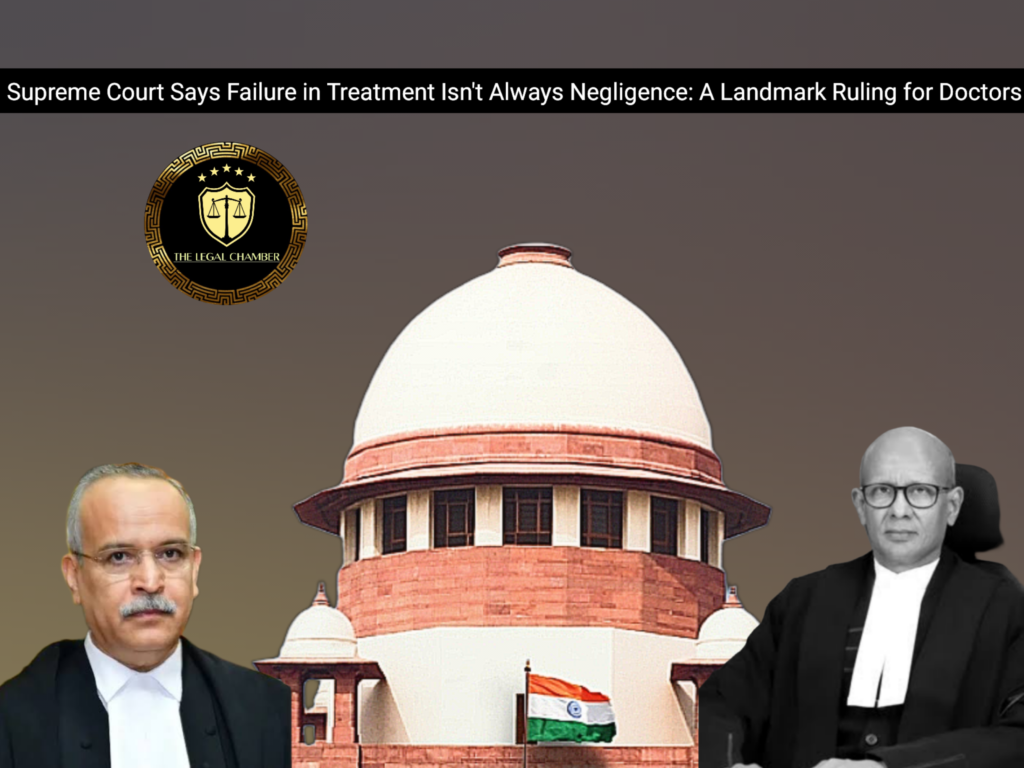
The Supreme Court held that consumer fora cannot travel beyond the pleadings to construct a new case for the complainant. It emphasized that medical negligence cannot be presumed merely because of an adverse treatment outcome. The Court ruled that the NCDRC overstepped its jurisdiction by basing its finding on antenatal care negligence, which was never pleaded by the complainant, and set aside the order.
Facts Of The Case:
Procedural History:
The legal journey began with a complaint filed by the husband before the State Consumer Disputes Redressal Commission (SCDRC), Chandigarh, which held both the nursing home and the doctor negligent in the post-delivery care and awarded compensation. On appeal, the National Consumer Disputes Redressal Commission (NCDRC) exonerated the nursing home but uniquely pinned liability solely on the doctor, not for the pleaded post-delivery negligence, but for a new, unpleaded ground of negligence in antenatal care. The doctor and nursing home then filed a special leave petition before the Supreme Court, which, despite noting that an appeal under Article 136 was not the ideal remedy against an NCDRC order, entertained the matter due to its long pendency. The Supreme Court ultimately allowed the appeal, setting aside the orders of both the SCDRC and NCDRC and dismissing the original complaint.
READ ALSO :Lawyer’s Reputation Restored: Supreme Court Wipes Clean High Court’s “Professional Impropriety” Remark
Court Observation:
The Supreme Court made several critical observations, fundamentally holding that the National Consumer Disputes Redressal Commission (NCDRC) overstepped its jurisdiction by building a new case of negligence in antenatal care that was never pleaded by the complainant, whose case was exclusively based on post-delivery negligence. The Court emphasized the settled legal principle that adjudicating bodies cannot travel beyond the parties’ pleadings to decide a case on grounds not raised. It further reiterated that a mere failure in treatment or an adverse outcome does not automatically constitute medical negligence, and courts must not substitute their own views for the opinions of medical experts, especially when multiple expert Medical Boards, constituted at the complainant’s own behest, had consistently opined that there was no gross negligence on the part of the doctor.
Final Decision & Judgement:
The Supreme Court allowed the appeal and set aside the orders of both the National and State Consumer Commissions, resulting in the dismissal of the original consumer complaint. The Court held that the NCDRC erred in law by basing its finding of negligence on unpleaded grounds of antenatal care, thereby constructing a new case for the complainant. Consequently, the Court directed the complainant, Manmeet Singh Mattewal, to refund the total sum of ₹10,00,000 received during the litigation to the doctor and the insurance company in monthly installments. The parties were ordered to bear their own costs.
Case Details:
Case Title: Deep Nursing Home and another Versus Mamneet Singh Mattewal and others Citation: 2025 INSC 1094 Appeal Number: Civil Appeal No. 1662 of 2016 Date of Judgement: September 9, 2025 Judges/Justice Name: Justice Sanjay Kumar and Justice Satish Chandra Sharma
Download The Judgement Here